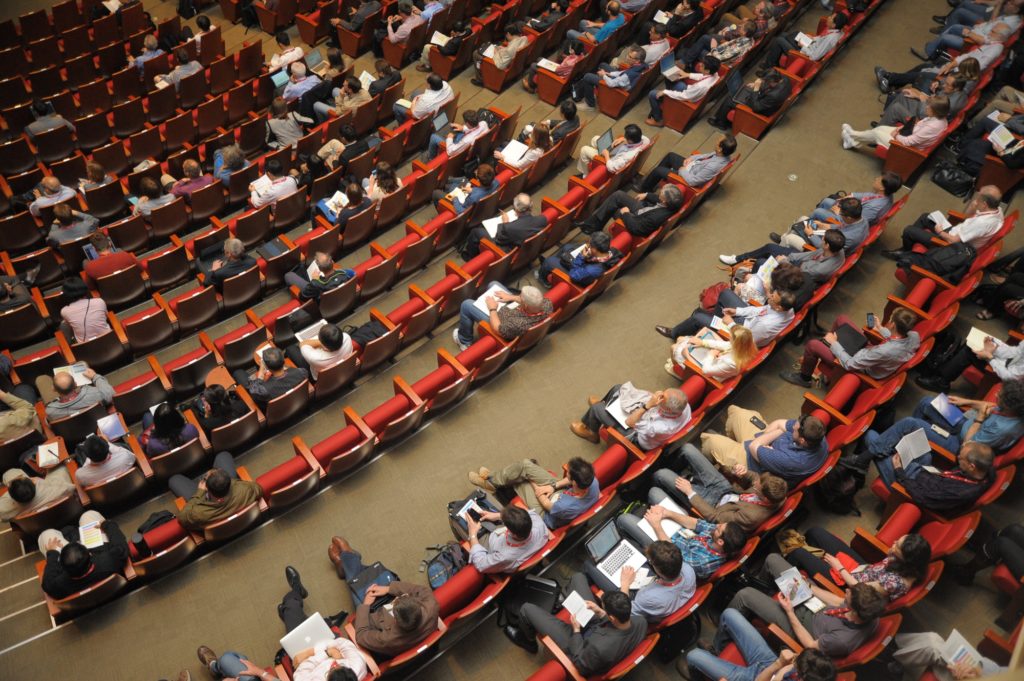Event report of the RSA 2019 Latin America Division Conference in Bogotá

A lived experience by The Student Delegation at the Universidad San Francisco de Quito, Ecuador (USFQ)
Attending the RSA 2019 Latin America Division Conference in Bogotá, Colombia was a valuable experience that helped us grow both individually and as a team. At the conference, we were able to get valuable feedback regarding our research. We were able to interact with experts from various scientific areas within the context of regional studies and thus strengthen our network of contacts.

Background
The Student Delegation USFQ is an interdisciplinary group from the Universidad San Francisco de Quito (USFQ) in Quito, Ecuador. Our research team is made up of five undergraduate students from the College of Architecture—Michelle Benavides, Paula León, Alejandro Ortiz, Adrian Silva, Fernando Tuquinga—and a recent USFQ graduate from civil engineering—María Eugenia Duque. Together, we developed a research project that explores how communities from informal settlements deal with the lack of infrastructure for public spaces. The team receives its support from Miguel Andrés Guerra, a professor in civil engineering at USFQ, and Vanessa Guerra, a research fellow at the College of Architecture and Urban Studies at Virginia Tech, USA.
Our research is within the area of informal settlements studies, particularly studying a community from the Andean States (Estados Andinos) located on the outskirts of Quito, Ecuador. The project focused on how this informal settlement has been replacing or creating spaces to satisfy the lack of infrastructure for public spaces. For the study, we developed and conducted 19 semi-structured interviews from a diverse demographic sample of the community members. Preliminary results suggest that this community uses their own resources and social capital. For example, they use a “minga”— an ancestral tradition in which the community gathers to contribute with their labor and equipment—to build and improve their roads. The community donates also part of their land to build playgrounds and holds fundraisers to build a community center consisting of a medium-sized meeting room, a playground, and a volleyball court. The community has also found ways to implement an informal transport system, a waste-management process, and groceries stores.
About attending the RSA conference
Attending the conference was very beneficial for us because we received specific feedback from experts. For example, one suggestion was to focus on how the informal processes in different areas – as transportation, waste management, and internal governance could contribute to the resiliency and sustainability of the formal city. As early careers, learning about these examples was valuable and pushed us to be more critical about our own work, which we think will be useful when we prepare scientific manuscripts for publication.
We also learned from the opportunity to interact with diverse topics of interest within the context of urban studies through the special sessions and plenary speakers. Fourteen special sessions were part of the conference. Sessions such as Ciudades, Inclusión y Desarrollo Urbano en América Latina or Informal Urbanism and Infrastructure in Latin American Cities; and Decentralization and Urban Planning in Latin America highlighted the different dimensions that contribute to the construction of inclusive cities, emphasizing also the connections of such dimensions with inequality and segregation. Other special sessions showcased case studies that aimed to combat social inequality, to take into account the needs and preferences of all the inhabitants of a city, whether they have a legal status or not, and to incorporate new governance strategies in a possible new definition of the urban across the Global South.
During the plenary panels, we learned from concrete case studies findings. For instance, in the plenary panel – What´s New/Urgent in Latin American Regional Studies – the discussion started with topics proposed by the speakers through their own lenses. They discussed extractive industries; new models to include diversity in development theories; rural and urban inequalities; gender issues; and the role the Latin American University has in the current context. These discussions included also topics from the audience. The effects of climate change in the variables that influence both rural and urban development in Latin America, and practical ways to disseminate knowledge directly into and from the communities were discussed. This type of session was very productive for us because the arguments were based on cases and evidence from research, whilst also welcome to different ideas through a productive discussion, which motivated us to get more involved in the academia and research world.
Another outcome from attending the conference was to start building an international network. During the conference, we met experts who are working on similar topics through a variety of different lenses, which led to fruitful conversations. For example, we met researchers who are working in a number of fields on case studies in Latin America. The conference also offered a good environment to develop friendships with other graduate students. We not only spent time together at the conference, but we formed a group to tour Bogotá together after the conference. We are still in touch and hope to develop further collaborations with them, and hopefully see them at the next conference.
Summary
This was our first time attending an academic conference to present our research. We are very grateful for the opportunity to have attended the RSA 2019 Latin America Division Conference. It was an opportunity to critically think about our own research through, to learn from other projects and to start building a network. The conference surpassed our expectations and we are looking forward to attending future RSA events.